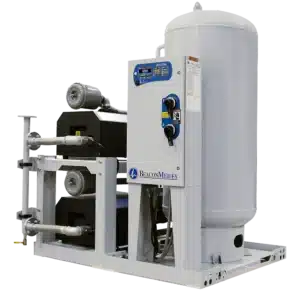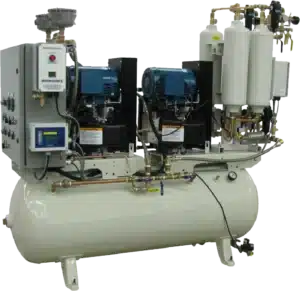In medical settings, it’s important to have medical gas equipment that delivers the right amount of gas to your patients at the right time. Even the most basic equipment failure can cause major problems in the medical field, which makes medical gas equipment even more of a challenge to manage. Fortunately, there are ways to prevent these problems from occurring in the first place, including making sure your equipment is regularly serviced and maintained. In order to do this successfully, you need to know how to correctly maintain your medical gas equipment and implement preventative measures to protect your patients and staff from avoidable problems with medical gas equipment.
Here are a few problem areas to look out for when it comes to your medical equipment.
Leaks in Outlets and Inlets
A medical gas leak can happen in any number of places: an outlet, an inlet, a connection point, or even the tubing itself. A leak in an outlet or inlet can cause a loss of pressure in the system, which can lead to a loss of power or an interruption in service. Additionally, leaks can allow contaminants to enter the system, which can cause serious health problems for patients. To avoid these problems, be sure to check for leaks regularly and repair them promptly.
There are a few things you can do to prevent this from happening:
- Make sure all connections are tight and secure before using the equipment
- Inspect the equipment regularly for any signs of wear or damage
- Replace any damaged or worn parts immediately
- Keep an eye out for any condensation or moisture build-up, as this can also lead to leaks.
- Install high-quality medical oxygen wall outlets
Faults in Gas Fittings
One of the most common problems with medical gas equipment is faults in the gas fittings. This can be a result of incorrect installation, wear, and tear, or poor maintenance. A medical gas fitting is a key component in the safe and proper function of any medical gas system. If a gas fitting is not functioning properly, it can cause a number of problems, including leaks, fires, explosions, and asphyxiation. All of these problems can be avoided by regularly inspecting and maintaining your medical gas equipment.
Procedures Slowed by Low Suction
Low suction can cause serious delays during medical procedures. When suction is too low, it can take longer to clear fluids and blood from the area being worked on. This can lengthen the time of the procedure, which can be frustrating for both patients and medical staff. Low suction can also cause infection by allowing bacteria and other contaminants to enter the wound. To avoid these problems, make sure your medical gas equipment is properly maintained and that you have adequate suction power for your needs.
While medical gas equipment might seem like an easy, one-size-fits-all solution, nothing could be further from the truth. Each product has strengths and weaknesses, and improper setup can lead to problems with both your equipment and your workflow. If you’re looking for Medical Gas Outlets in Ohio, get in touch with us today!


